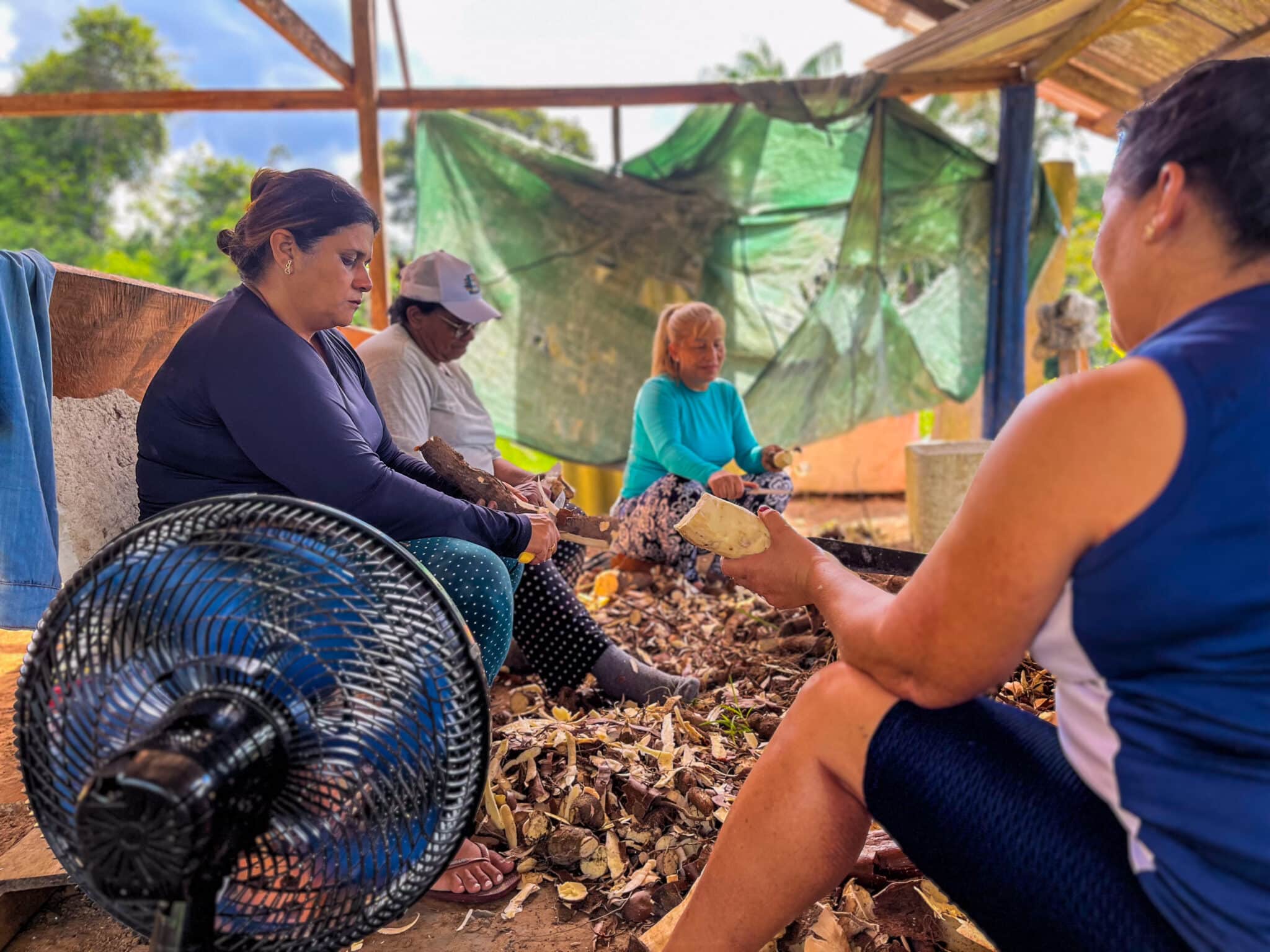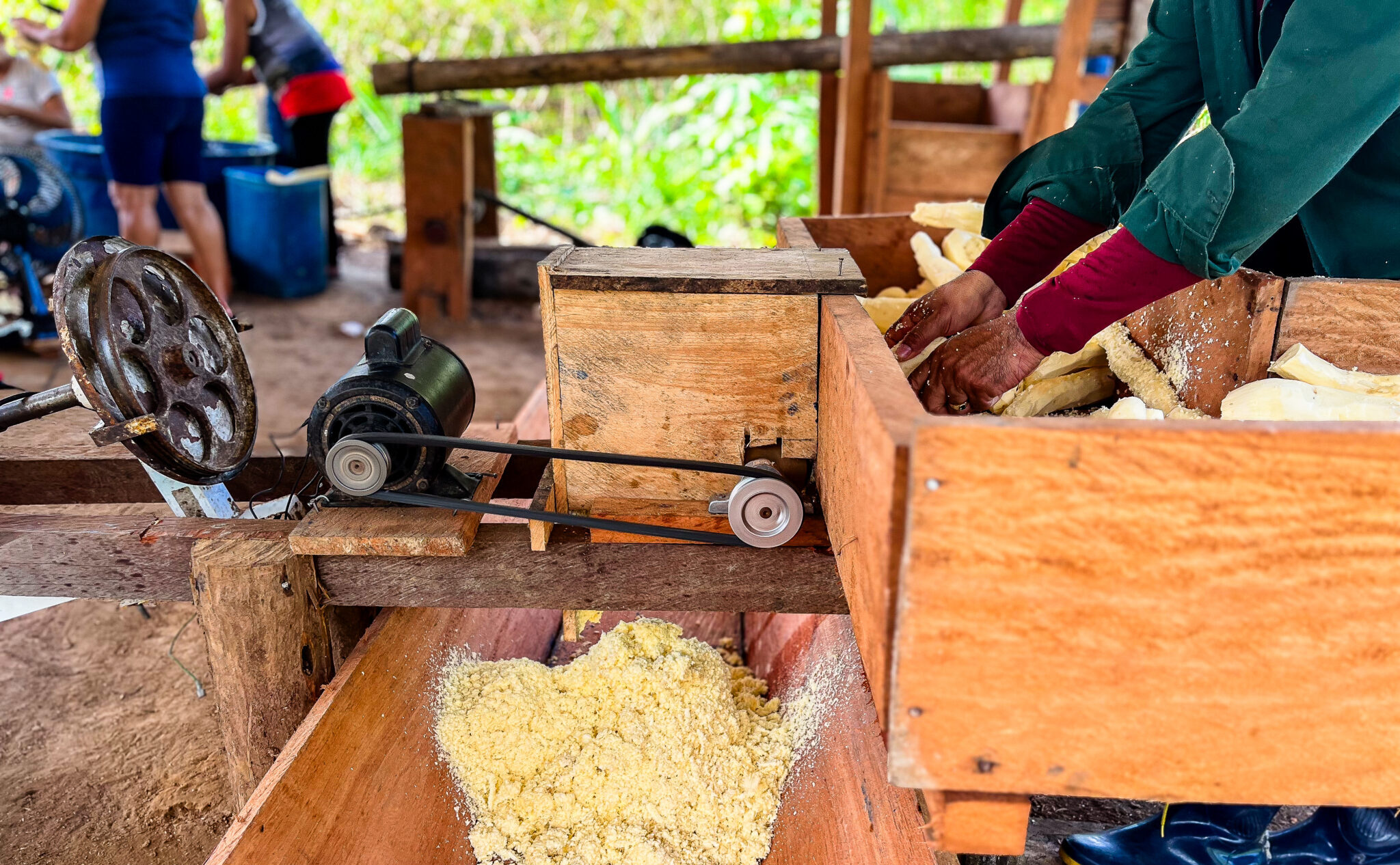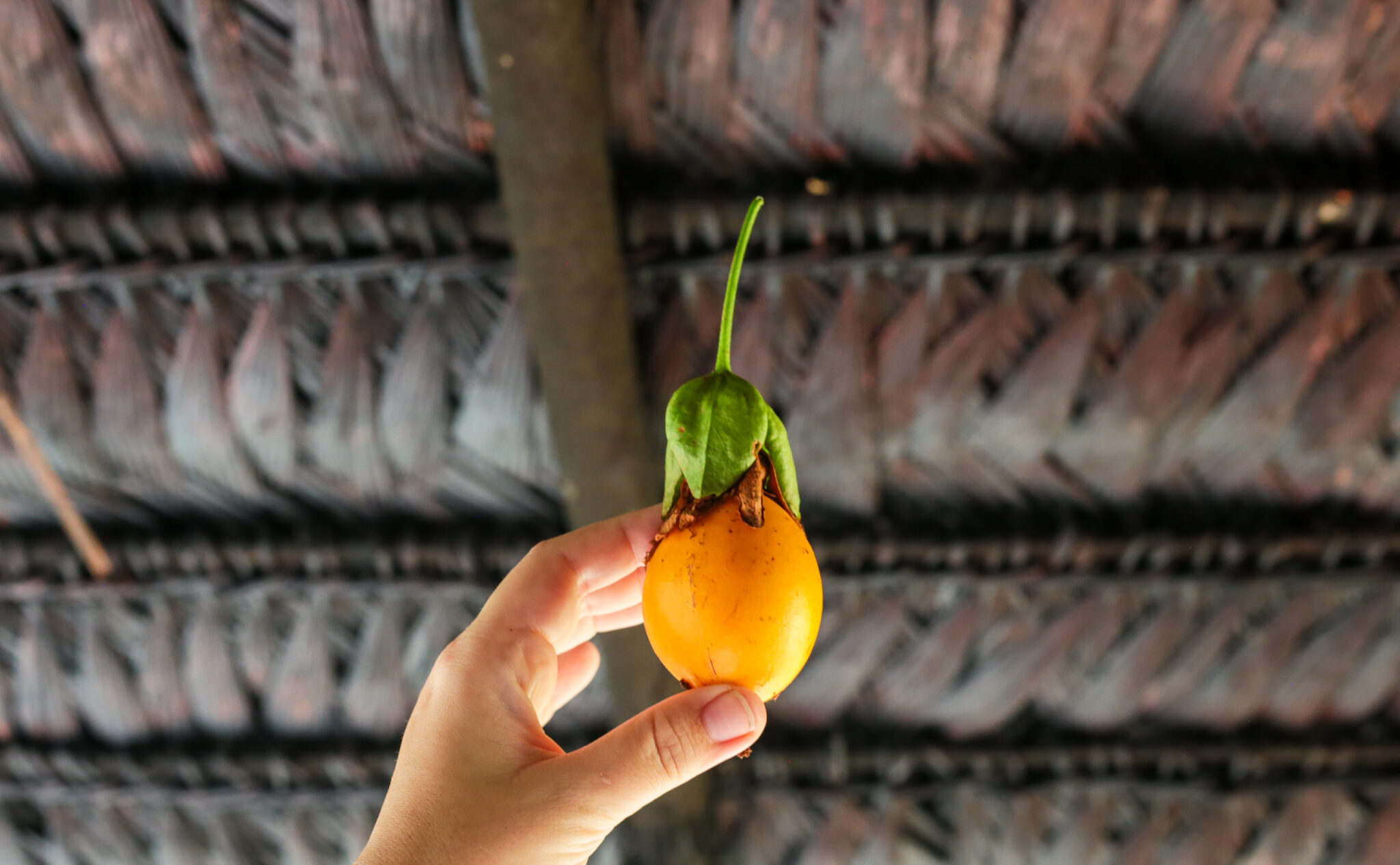MANEJO FLORESTAL SUSTENTÁVEL
O manejo florestal sustentável é o núcleo da nossa missão. Pretendemos conservar a vitalidade e o potencial deste patrimônio universal para que possa continuar as suas funções essenciais: ecológica, econômica e social, tanto a nível local como global, atuando no presente e no futuro.
A lei no Estado do Amazonas permite a colheita de no máximo 25m3/ha de madeira l por um período mínimo de 30 anos.
No Projeto Mejuruá, limitamos ainda mais o potencial de colheita, a um uso máximo de apenas 20m3/ha ao longo de um período de 30 anos.

Execução prática: metodologia e abordagem prática
O Projeto Mejuruá ocorre na Amazônia, em uma área notavelmente grande, de mais de 900.000 hectares entre os municípios de Carauari, Juruà e Jutai.
Mais de 160.000 hectares gerenciados de forma sustentável
Dentro deste território, manejamos de forma sustentável um total de mais de 160.000 hectares: depois de termos dividido este território em 30 parcelas, selecionamos anualmente uma única parcela na qual extraímos criteriosamente um volume limitado de madeira, permitindo-lhe regenerar ao longo de um período de 30 anos, quando permanece intocavel.
Nossa abordagem garante que a floresta seja capaz de se regenerar – ao mesmo tempo em que aprimora seus recursos de maneira responsável.
Crescendo mais verde: práticas inovadoras para uma floresta resiliente
A exploração madeireira de impacto reduzido (RIL) e outras práticas (como a proteção de árvores raras ou a remoção de árvores porta sementes) permitem que a floresta cresça qualitativamente melhor e mais forte. A atividade seguirá as melhores práticas reconhecidas globalmente para manter a sustentabilidade da floresta e será certificada de acordo com os padrões internacionais correspondentes, como o Programa para o Reconhecimento da Certificação Florestal (PEFC).
Desenvolvimento econômico sustentável: os créditos de carbono
O Projeto Mejuruá é uma iniciativa de REDD+ com o objetivo de conservar a floresta, assim, os Créditos de Carbono a serem gerados por este projeto são baseados no fato de que as emissões de Carbono provenientes do desmatamento ou degradação florestal são evitadas.
Do coração da floresta ao coração de seu povo
Respeitar a floresta está no centro do que fazemos: é por isso que todas as nossas ações buscam manter um equilíbrio harmonioso entre o bem-estar da floresta e as pessoas que chamam essa terra de lar.

Ferramentas e técnicas de monitoramento
Ao longo da duração do projeto, a eficiência dos nossos esforços de conservação florestal será garantida por uma metodologia meticulosa que implementa tecnologias e ferramentas avançadas. As tecnologias de imagem de satélite, juntamente com o patrulhamento local, permitirão uma vigilância abrangente capaz de detectar rapidamente possíveis atividades ilegais ou mudanças no ecossistema. As equipes de patrulhamento no terreno inspecionam a área, interagem regularmente com as comunidades locais e garantem que todas as atividades realizadas no território estejam alinhadas com os objetivos do projeto.
Além disso, as comunidades locais apoiarão o esforço de vigilância, pois são moradores locais, em contato direto com a floresta e as possíveis ameaças que podem atingí-la.

Transparência
Garantimos nossa responsabilidade e transparência, disponibilizando publicamente atualizações e relatórios regulares sobre nossas atividades.
As informações disponíveis ao público abrangem tanto o planejamento como os projetos envolvidos na iniciativa numa perspetiva ex ante e o acompanhamento da implementação e desempenho na situação ex post, utilizando diferentes indicadores.
Uma parte relevante do processo de divulgação é, de fato, exigida pelas diferentes certificações da iniciativa, usando terceiros independentes para auditar o processo. É o caso das certificações VCS e CCB da Verra, que são direcionadas para a originação de Créditos de Carbono e os esforços correspondentes para apoiar as comunidades locais e a biodiversidade. Um processo de monitoramento abrangente é realizado e divulgado publicamente de acordo com as normas correspondentes, nesse sentido.
No entanto, no que diz respeito à transparência, o Projeto Mejuruá vai muito além. Nesta seção, você encontrará informações gerais e também específicas sobre o projeto e seu desempenho ao longo do tempo, organizadas de acordo com o assunto e o público interessado, sob os seguintes títulos:
- informações gerais sobre a operação do projeto
- informações para as comunidades locais sobre atividades sociais e culturais
- informações para as comunidades locais em relação à biodiversidade
- informações sobre impactos ambientais locais
- informações sobre impactos globais climáticos
- informações gerais financeiras sobre o Projeto Mejuruá
- contatos para mais informações, mediante solicitação
Os benefícios do manejo florestal sustentável
Prevenção do desflorestamento
O Manejo Florestal Sustentável é uma atividade ecológica. Ao gerar sua própria renda, evita outras atividades alternativas, algumas delas destrutivas e até ilegais.
Registro de Impacto Reduzido
Evitar práticas destrutivas que prejudiquem a floresta, valorizando sua capacidade de regeneração natural.
Conservação da biodiversidade
Manutenção do ecossistema, protegendo um grande número de espécies que vivem na área do projeto, incluindo 13 que atualmente estão em alto risco de extinção.
Salvaguarda do ecossistema
Concentrar nossos esforços na conservação da área beneficiará a biodiversidade local bem como as áreas vizinhas. Isto é conseguido através da promoção da conectividade do habitat, permitindo a transição de espécies. A ligação entre diferentes áreas naturais é crucial para a preservação da diversidade biológica, pois permite que os animais se movam livremente, busquem recursos e estabeleçam novas populações.
